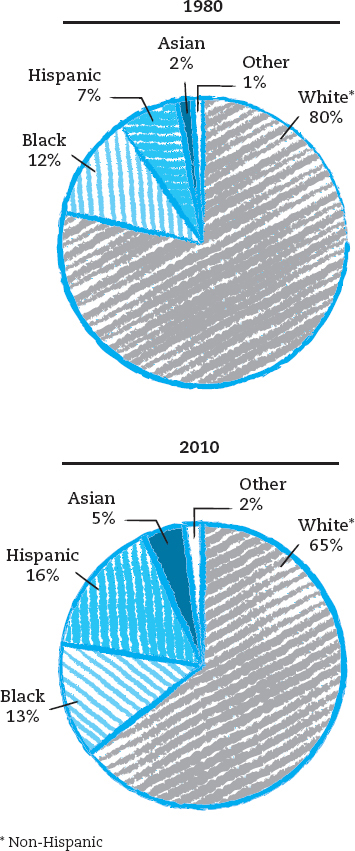Intercultural Communication Matters
Intercultural Communication Matters
Page 53

People from different cultures have correspondingly different worldviews. This can lead to misunderstandings, anger, hurt feelings, and other challenges when individuals from various backgrounds interact. In an attempt to avoid such negative outcomes, communication scholars invest a great deal of time and effort to study and write about intercultural communication, the communication between people from different cultures who have different worldviews. Communication is considered intercultural when the differences between communicators are so substantial that they can create different interpretations and expectations (Lustig & Koester, 1993).
The answer to addressing intercultural misunderstanding isn’t to interact only with those you perceive as exactly like you. You live in a diverse and mobile society, and you study, play, and work with people who are different from you on a number of levels. Let’s consider why studying intercultural communication matters so much.
A Diverse Society. The United States is a diverse country, with a population that reflects a range of ethnic, racial, and religious backgrounds. Different regions of the country (and sometimes different neighborhoods in the same city) have distinct cultures as well (see Figure 3.1). You have a unique cultural background and communication style that differ in some ways from those of others. So, to function as a member of such a diverse society, you need to be able to communicate appropriately and effectively with a wide variety of individuals. Two key parts of this process are understanding your own cultural expectations for communication and respecting those of others.
Mobility. More than six in ten adults have moved to a new community at least once in their lives, and more than one in five say the place they are living now is not “home” (Taylor, Morin, Cohn, & Wang, 2008). Therefore, you must be ready to address cultural differences—not just between nations but also between regions, states, and cities. Even if you don’t plan on ever leaving your hometown, you will almost certainly communicate at some time or another with people from outside of it, face to face and through a variety of media.
Culture and You
How long have you lived in your current location? Are people where you reside treated differently based on their status as new or established members of the community? How does their status change based on their level of involvement in the community?
Mediated Interaction. Clearly, mediated communication is changing the way we experience the world and broadening the range of people and groups with whom we regularly interact. In the United States today, some 66 percent of American adults have broadband access at home (Smith, 2010a). In addition, 40 percent of adults access the Internet via mobile devices. Thus, we communicate electronically more and more each year (Smith, 2010b). Through the Internet and other technology, we connect not only with far-off family and friends but also with individuals from around the country—or around the world—when we participate in online gaming, post our thoughts on online forums, or read others’ personal blogs.
Even among Americans who do not have access to these technologies, more traditional media enable exposure and interaction with people from different cultures. Calls to customer-service centers are answered in other parts of the country or on the other side of the world. Radio stations bring international music and news right to your car. Newspapers carry stories from correspondents across the globe. And television offers glimpses of cultures we might not be a part of—through broadcasts of British situation comedies on PBS, soccer games from South America, and foreign films on the Sundance Channel. American TV programs also have increasingly diverse casts.
Technology and You
Are you part of any online groups or discussion forums that allow you to interactwith individuals in other cities, states, or nations? If so, have you encountered any specific intercultural communication issues? (This may be something seemingly small—like confusion over the meaning of a phrase—or something more significant—like different levels of directness in communication.) If so, how did you handle the situation to increase the effectiveness of communication?
Diverse Organizations. Any job you take will involve some degree of intercultural communication. A teacher may have students whose families are from different parts of the country or from other countries entirely; an entrepreneur must understand how different groups respond to her product and her marketing campaigns. Being aware of how culture affects communication is especially crucial to business communication across borders (Busch, 2009). During negotiations, for instance, you may need to know how hard to push a client to commit and when to be silent.
Clearly, intercultural communication is important in your life as a student, a citizen, and a professional. The culture in which you live (or were raised) has particular ways of communicating in the world. We illustrate these by examining the following seven cultural variations.

THINGS TO TRY
Make a list of all the places you have lived in, visited, or traveled to. Create a bullet-point list to describe the attitudes, customs, and behaviors of the people who seemed typical of each area. How was communication different in each place? How was it similar?
LearningCurve